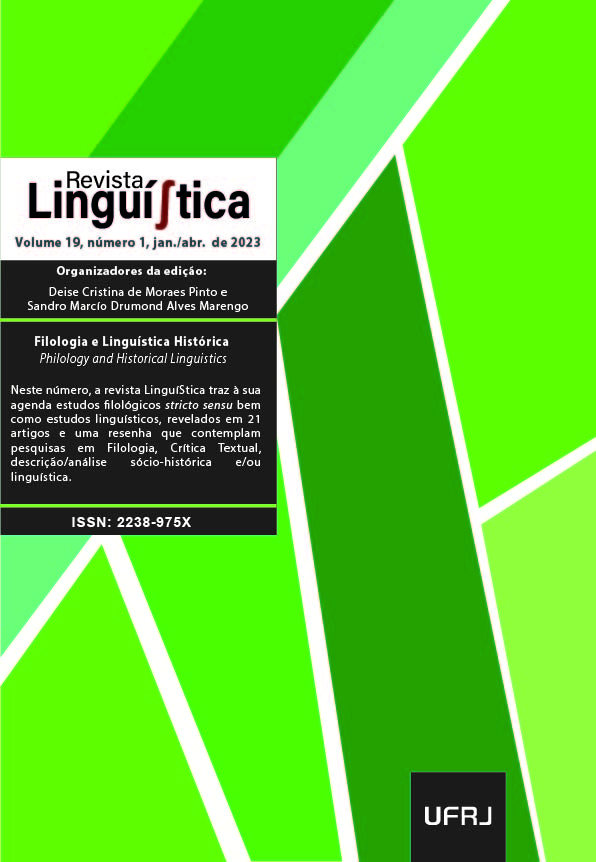Linguistic aspects of italian comedy in the renaissance: the relevance of the florentine language in the construction of Machiavelli’s Mandragola
DOI:
https://doi.org/10.31513/linguistica.2023.v19n1a57740Keywords:
Machiavelli, Italian language, Renaissance comedy, Mandragola, Philology.Abstract
This article aims to conduct a linguistic analysis of the most significant theatrical comedy of the Italian Renaissance: Mandragola (1513-1518), written by Niccolò Machiavelli (1469-1527). Despite being extensively studied from a political point of view, it should also be approached in its literary and philological character. From the perspective of studies on the Questione della lingua and considering the issues presented in another work by the author – Discorso o dialogo intorno alla nostra lingua – we seek to reflect upon the importance of the language used in his comedies, not only to provide clues about the spoken language but especially to examine the nuances that the author gives to each character, allowing for a better interpretation. Not by chance, Machiavelli is considered the first theorist of comedy, demonstrating that his interest in the genre was not casual or superficial but rather rooted in the literary form itself. Despite many critics not considering his other plays to be of similar value, believing them to be mere versions and translations, it is crucial to keep in mind that the author wrote them in the Florentine language spoken in his time, bringing the audience and readers closer to his theatrical texts. Much of his success does not solely come from the themes he chooses to present but from the language in which he writes his plays. Therefore, even though it is impossible to analyze all cases in this article, we will highlight those considered most relevant within Mandragola, which can be used to complement the analysis of characters in his works and the changes presented in the Italian language itself.Downloads
Published
Issue
Section
License
Copyright (c) 2023 Revista Linguí∫tica

This work is licensed under a Creative Commons Attribution-NonCommercial 4.0 International License.
Authors who publish in the Revista Linguí∫tica agree with the following terms:
The authors maintain their rights, ceding to the journal the right to first publication of the article, simultaneously submitted to a Creative Commons license permitting the sharing with third-parties of published content as long as it mentions the author and its first publication in the Revista Linguí∫tica.
Authors may enter into additional agreements for the non-exclusive distribution of their published work (for example, posting in online institutional or non-profit repositories, or book chapters) so long as they acknowledge its initial publication in the Revista Linguí∫tica.

The journal Revista Linguí∫tica is published by the Post-Graduate program in Linguistics of UFRJ and employs a Creative Commons - Attribution-NonCommercial 4.0 International (CC-BY-NC).









